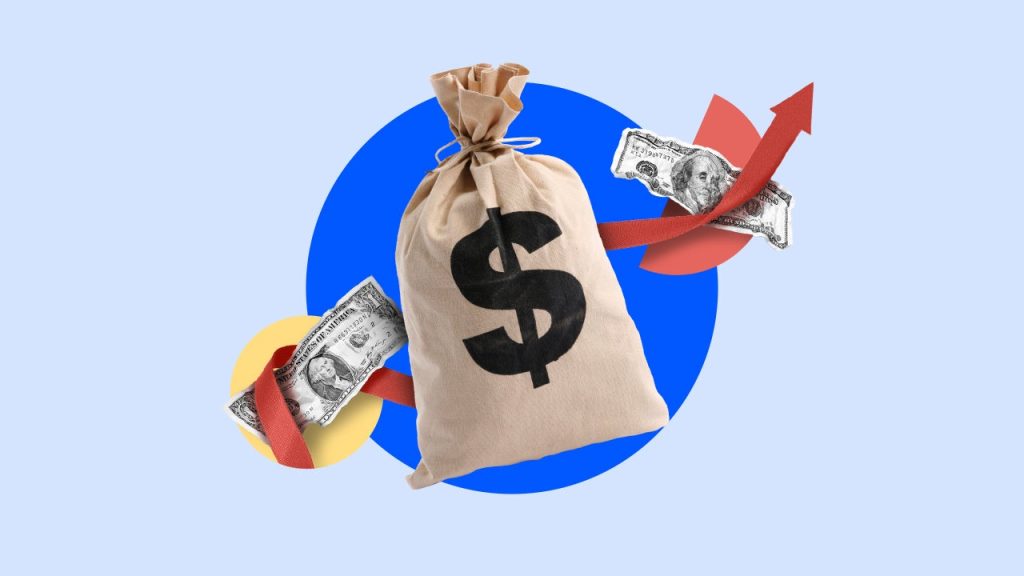Images by GettyImages; Illustration by Hunter Newton/Bankrate
In the news: September Fed meeting
Lower personal loan rates may be on the horizon in 2024 after the Fed made progress curbing inflation at the end of 2023. That progress came after four more Federal Reserve rate hikes in 2023. Bankrate Chief Financial Analyst Greg McBride, CFA suggests rate cuts may be possible in 2024, which could benefit personal loan rates if the economy doesn’t head into a recession.
McBride explains the relationship between personal loan rates, the U.S. economy and a potential drop in the federal funds rate, which sits at 5.25-5.5 as of the meeting on July 31, 2024.
I am forecasting two rate cuts skewed toward the back half of next year, and in response to that we could see a little drop in personal loan rates.
— Greg McBride, CFA | Bankrate chief financial analyst
As inflation shows signs of slowing, borrowers may see lower personal loan rates in 2024. Any Fed cuts will likely have a direct effect on personal loan rates. “Personal loans are pegged to short term interest rates like the prime rate that moves in concert with Fed interest rate cuts,” McBride explains.
- Average personal loan rates started at 10.37 percent in January 2023.
- Rates continue to climb in 2024, currently standing at 12.38 percent as of July 2024.
- Personal loan rates may drop if the Fed starts cutting rates in the second half of 2024.
What happened to personal loan rates in 2023
Increases in personal loan rates were more stable in 2023, following the lead of four Fed rate hikes throughout the year. Although the Fed paused its rate hike campaign in July, personal loan rates continued to creep higher into the end of the year.
Despite higher rates, total unsecured personal loan balances set a new record, growing to $241 billion by the third quarter of 2023, according to TransUnion data. Consumers are also borrowing more with the average personal loan balance rising to $11,281 per consumer, setting another record milestone.
Although new personal loan originations were down, they’re still higher than they were in the pre-pandemic period — a sign that consumer demand for personal loans hasn’t diminished in the face of persistent rate increases.
The direction of lending standards for 2024 will depend on the economy
Overall, personal loan requirements have been tightening since the fourth quarter of 2022. Whether personal loan lending standards will tighten further depends on how the economy fares in 2024. “If the economy goes into a recession in 2024, those tight credit conditions are going to persist and they’re going to get even tighter,” McBride says.
Recent TransUnion data showed a 15 percent drop in overall personal loan originations in the third quarter of 2023 compared to 2022, which indicates lenders may be focusing on less risky borrowers. On the other hand, originations of personal loans for excellent credit spiked by 20 percent versus 2022, which means lenders may prefer lending to borrowers on excellent financing footing.
McBride suggests a healthy economy may also have a positive impact on getting approved for a personal loan, even if interest rates fall. “If the economy averts a recession, then that really helps from a credit availability standpoint on personal loans.”
However, if a weaker economy is the reason for the Fed rate cuts, personal loan rates may not drop, and loan approval could become much more difficult. “If the Fed’s cutting rates because the economy rolled over, you’re not necessarily going to see that translating into lower rates because credit’s going to be tightening,” McBride adds.
Next steps for consumers
The best plan is to reduce as much expensive debt as possible. McBride recommends consumers pay down high-cost debt, like credit cards or high-rate personal loans, as rates may remain elevated throughout 2024.
Despite the encouraging prospect of the Fed cutting rates after 11 consecutive rate hikes, rates will likely remain high. Consumers shouldn’t expect a rapid drop in rates anytime soon.
Interest rates took the elevator going up. They’re going to take the stairs going down.
— Greg McBride, CFA | Bankrate chief financial analyst
Consider beefing up your emergency savings to avoid high-cost debt in the future. Having extra savings provides a buffer if unexpected expenses arise, and reduces the likelihood you’ll need to borrow to make ends meet.
Getting a new personal loan may be a way to improve your financial situation in 2024, especially if you paid off multiple credit card debts in 2023 with a debt consolidation loan. “You may be able to refinance a personal loan that was taken out at a much higher rate at a more competitive rate now that your credit has improved,” McBride says.
Read the full article here
















